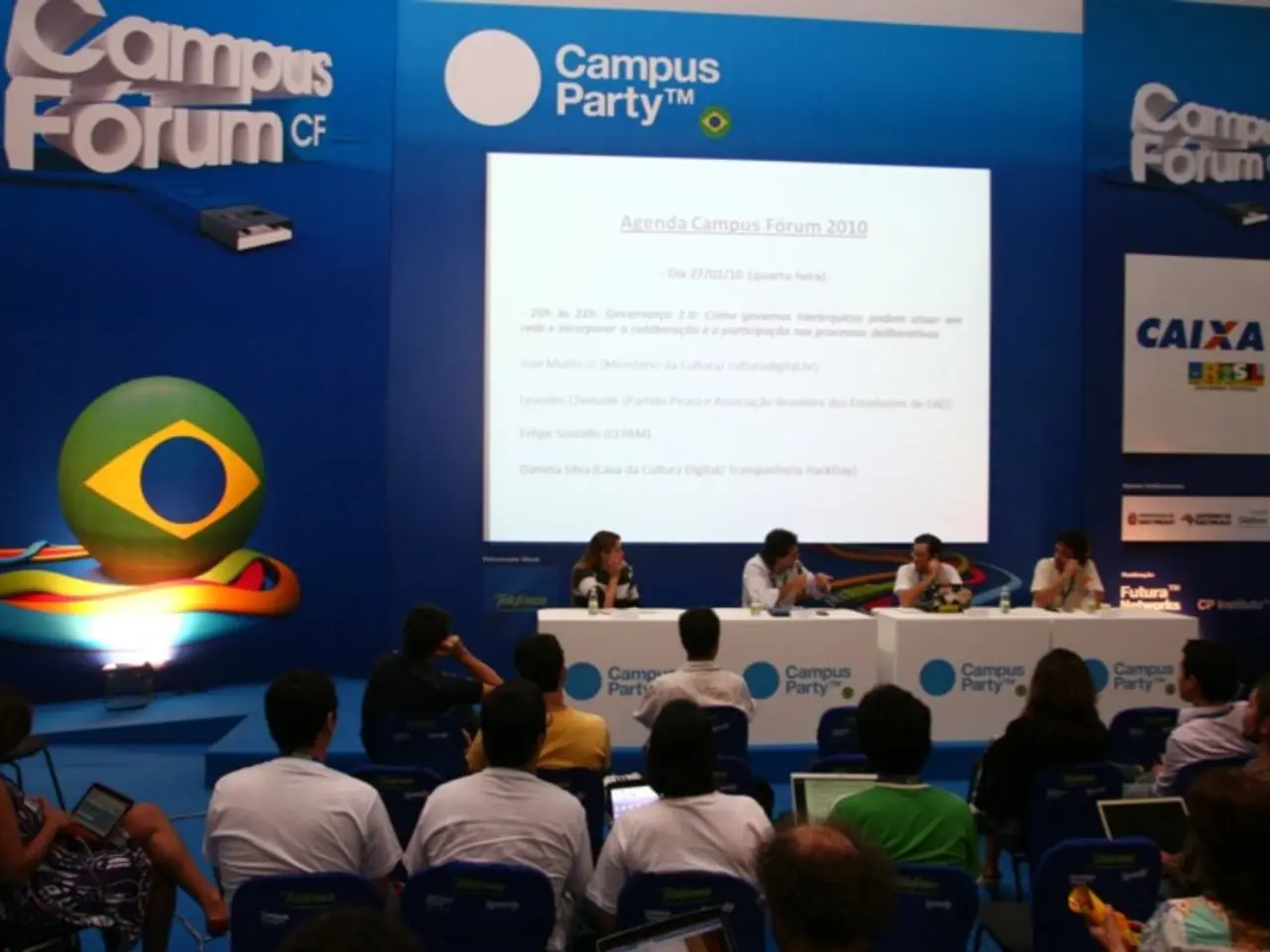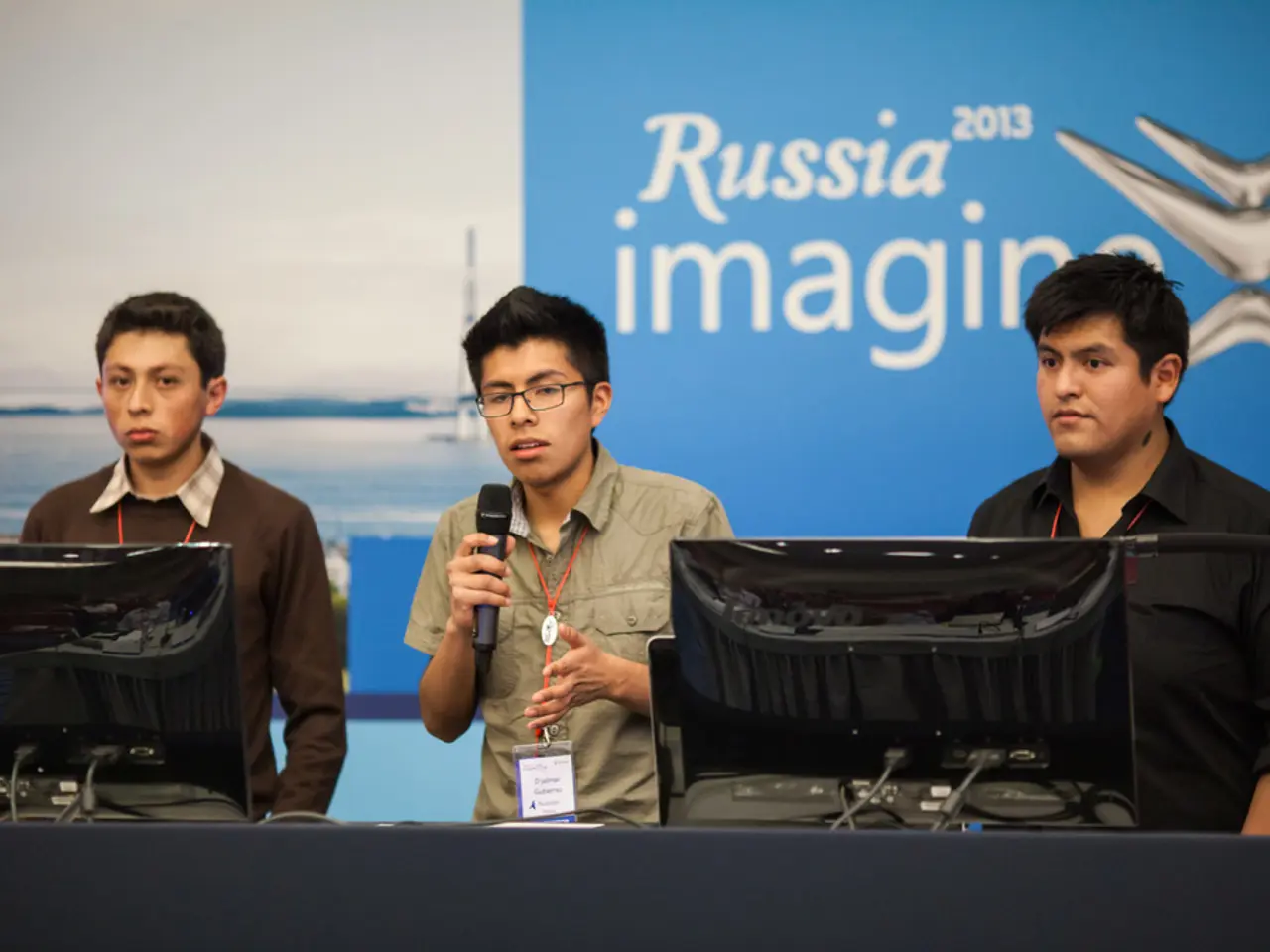Legislative session concludes filibuster, advances broadcasting bill pushed by Democratic Party leadership
South Korea's Democratic Party (DP) has successfully passed one of the three contentious broadcasting bills in a recent parliamentary session, specifically an amendment to the Broadcasting Act aimed at reforming the governance of public broadcasters like KBS. The bill mandates replacing all board members and executives of KBS within three months, expanding the board from 11 to 15 members, and establishing a public nomination committee of about 100 diverse citizens to select the KBS president [1][2][3][4][5].
However, the People Power Party (PPP) strongly opposed these bills, launching a 24-hour filibuster in an attempt to block the vote. After the filibuster was ended by a cloture vote with overwhelming support (187 votes in favor, 2 against), the PPP lawmakers boycotted the final vote and walked out in protest [1][2][3][4]. The PPP argues that the legislation threatens press freedom and is designed to increase pro-government influence over public broadcasters. The PPP has also indicated intentions to legally challenge the bills, including the "Yellow Envelope" bill planned for the same session, by filing constitutional petitions should the bills include unconstitutional provisions [4][5].
The "Yellow Envelope" bill, which aims to broaden labor protections, along with amendments to the Commercial Act, are expected to be considered in the same parliamentary session later in August 2025. The DP has indicated it plans to push these through despite opposition resistance [2][4].
Business lobby groups' specific reactions to these bills are not detailed in the sources, but the intense partisan conflict and PPP's mention of constitutional challenges suggest considerable resistance beyond just the opposition party, possibly including business and media stakeholders concerned about government influence and labor regulations [4].
The other two broadcasting bills in the set propose similar changes to the governance structures at MBC and EBS. The National Assembly has yet to vote on these bills, but they are expected to be handled in the upcoming August session.
In summary:
| Bill | Status as of August 2025 | Reception by People Power Party & Business Groups | |-----------------------------------|---------------------------------------------------|----------------------------------------------------------------------| | Broadcasting Act Amendment (KBS) | Passed after a 24-hour filibuster; effective immediately with board and leadership overhaul planned | Strong opposition; filibuster launched; PPP boycotted final vote; plans for constitutional challenges | | Two other broadcasting bills | Expected to be handled in upcoming August session | Opposition expected, with PPP warning of constitutional issues | | Yellow Envelope Bill (Labor law) | Pending in August session | PPP opposes; threat of constitutional petition if passed with contested provisions | | Commercial Act amendments | Pending in August session | Same as above |
This legislative push reflects the ruling party's agenda to reduce political influence perceived to come from the opposition, while critics warn of increased government control over public media [1][2][4][5]. It is important to note that former President Yoon Suk Yeol previously vetoed these bills, and the PPP's floor leader, Rep. Song Eon-seog, has threatened to file an adjudication with the Constitutional Court on the constitutionality of the recently passed amendment to the Broadcasting Act.
- The People Power Party (PPP) has expressed strong opposition towards the policy-and-legislation changes regarding the Broadcasting Act and the "Yellow Envelope" bill, arguing that these policies threaten press freedom and could lead to increased pro-government influence over public broadcasters and labor regulations.
- The PPP, along with potential business lobby groups and media stakeholders, has indicated intentions to legally challenge certain bills, including the broadcasting bills aimed at reforming the governance of MBC and EBS, and the "Yellow Envelope" bill, should they contain unconstitutional provisions, signifying a significant political conflict in South Korea's general news landscape.






